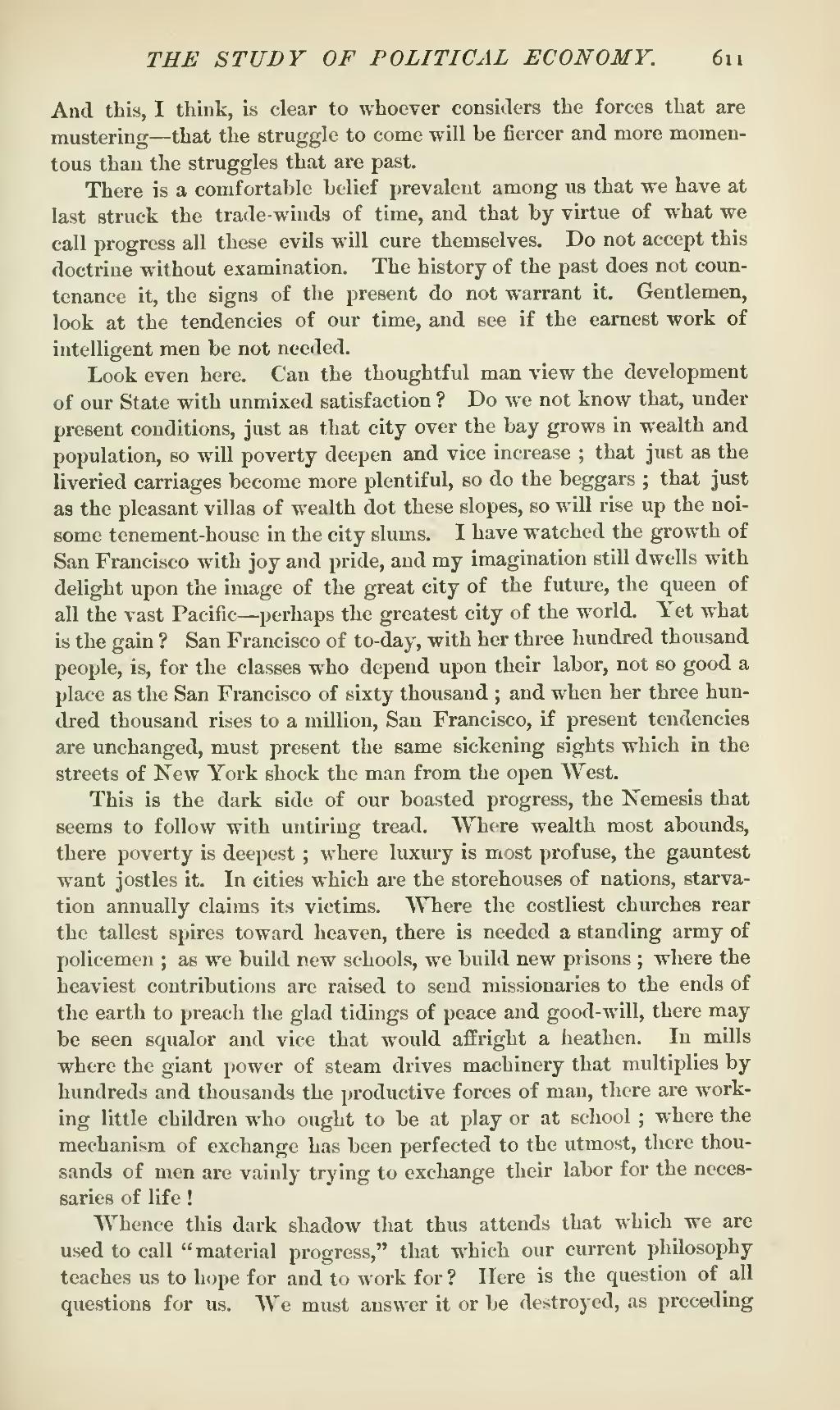And this, I think, is clear to whoever considers the forces that are mustering—that the struggle to come will be fiercer and more momentous than the struggles that are past.
There is a comfortable belief prevalent among us that we have at last struck the trade-winds of time, and that by virtue of what we call progress all these evils will cure themselves. Do not accept this doctrine without examination. The history of the past does not countenance it, the signs of the present do not warrant it. Gentlemen, look at the tendencies of our time, and see if the earnest work of intelligent men be not needed.
Look even here. Can the thoughtful man view the development of our State with unmixed satisfaction? Do we not know that, under present conditions, just as that city over the bay grows in wealth and population, so will poverty deepen and vice increase; that just as the liveried carriages become more plentiful, so do the beggars; that just as the pleasant villas of wealth dot these slopes, so will rise up the noisome tenement-house in the city slums. I have watched the growth of San Francisco with joy and pride, and my imagination still dwells with delight upon the image of the great city of the future, the queen of all the vast Pacific—perhaps the greatest city of the world. Yet what is the gain? San Francisco of to-day, with her three hundred thousand people, is, for the classes who depend upon their labor, not so good a place as the San Francisco of sixty thousand; and when her three hundred thousand rises to a million, San Francisco, if present tendencies are unchanged, must present the same sickening sights which in the streets of New York shock the man from the open West.
This is the dark side of our boasted progress, the Nemesis that seems to follow with untiring tread. Where wealth most abounds, there poverty is deepest; where luxury is most profuse, the gauntest want jostles it. In cities which are the storehouses of nations, starvation annually claims its victims. Where the costliest churches rear the tallest spires toward heaven, there is needed a standing army of policemen; as we build new schools, we build new prisons; where the heaviest contributions are raised to send missionaries to the ends of the earth to preach the glad tidings of peace and good-will, there may be seen squalor and vice that would affright a heathen. In mills where the giant power of steam drives machinery that multiplies by hundreds and thousands the productive forces of man, there are working little children who ought to be at play or at school; where the mechanism of exchange has been perfected to the utmost, there thousands of men are vainly trying to exchange their labor for the necessaries of life!
Whence this dark shadow that thus attends that which we are used to call "material progress," that which our current philosophy teaches us to hope for and to work for? Here is the question of all questions for us. We must answer it or be destroyed, as preceding

